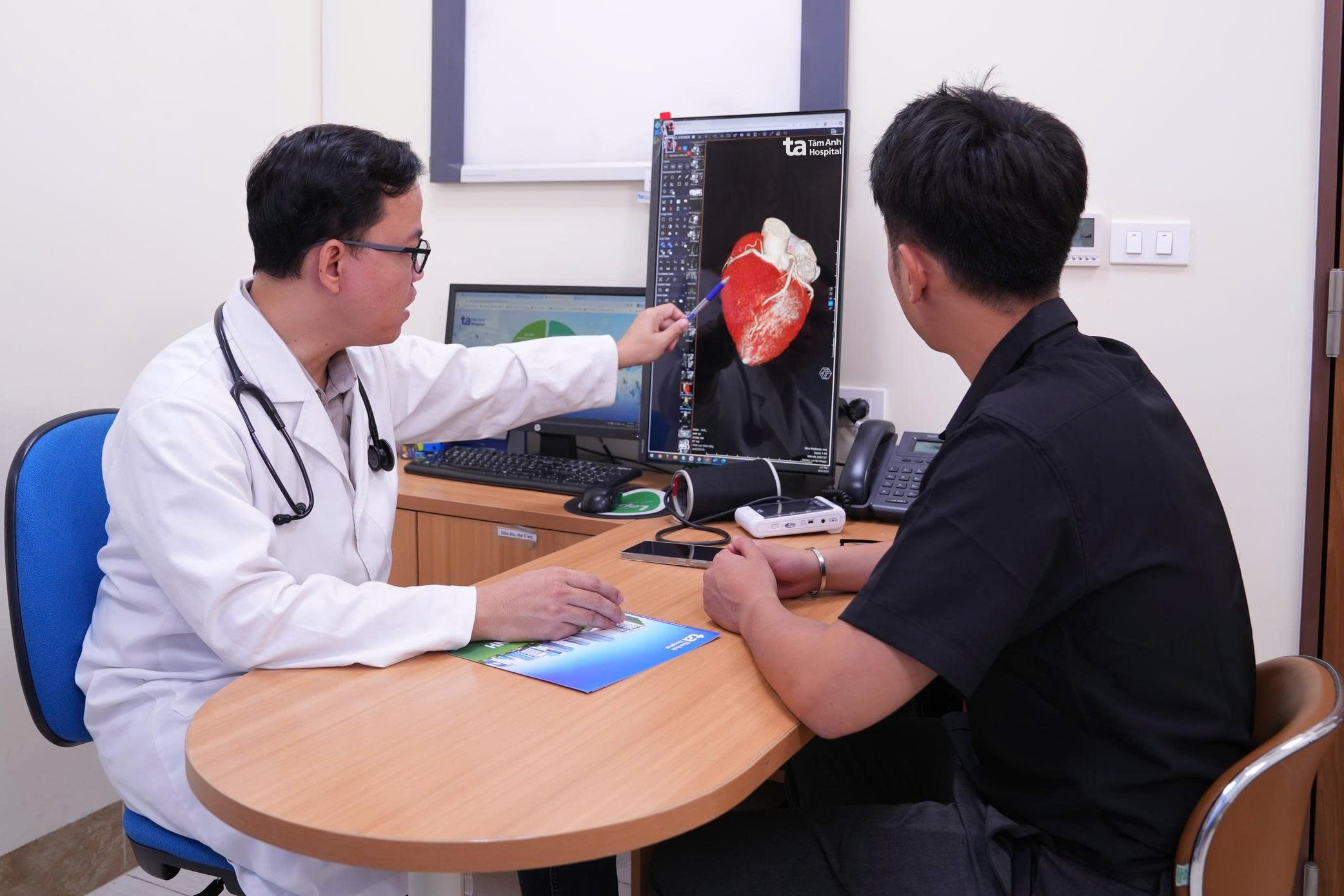Doctor Nguyen Tuan Long from the Cardiology Department of Tam Anh General Hospital in Hanoi says sudden cardiac arrest is often an unexpected event, but in reality, many cases have subtle warning signs beforehand. Most cardiac arrests are caused by dangerous arrhythmias that cause the heart to suddenly and severely decline or lose function. If patients are not treated promptly, the condition can quickly progress to sudden cardiac death. This condition often stems from underlying heart conditions such as coronary artery disease, heart failure, arrhythmia, or heart valve problems.
"Warning signs of cardiac arrest can appear from a few hours to a few weeks before the event occurs," Dr. Long says. Many studies show that 50-65% of people who have experienced cardiac arrest had prior warning symptoms, but most were mild, transient, and easily mistaken for fatigue, weather changes, or signs of aging.
Chest pain or a feeling of tightness in the chest warns of myocardial ischemia. Patients may feel a dull ache, heaviness in the chest, or a crushing sensation in the middle of the chest, sometimes spreading to the left arm, neck, or back. The pain usually appears during exertion and can also occur during rest in dangerous cases.
Palpitations or a racing heart can warn of an arrhythmia, one of the direct causes of cardiac arrest. These episodes can occur when using stimulants like coffee or alcohol, during strong emotions, or even at rest. This indicates a problem with the heart's electrical system, which is unable to control the heartbeat.
Unexplained shortness of breath. Shortness of breath when walking, climbing stairs, or even while sleeping can indicate that the heart is not pumping blood effectively, signaling a risk of heart failure or myocardial ischemia. Many people feel more easily tired during mild exercise and gradually lose their endurance, unaware that this is an early warning sign of disease.
 |
Dr. Long examines and advises a patient. Photo: Tam Anh General Hospital |
Dr. Long examines and advises a patient. Photo: Tam Anh General Hospital
Fainting or brief dizziness warns of a heart rate that is too slow or a disruption in the electrical conduction of the heart, preventing blood from reaching the brain quickly enough and causing temporary loss of consciousness.
Cold sweats, nausea, and unexplained anxiety are manifestations of autonomic nervous system dysfunction, often accompanying acute myocardial ischemia. Some patients have described feeling "unusually anxious" or "uncomfortable for no reason" just before losing consciousness.
According to Dr. Long, warning signs of cardiac arrest are often vague and easily confused with stress or fatigue. This can happen even in people who have never been diagnosed with heart disease but have risk factors such as smoking, high blood pressure, diabetes, dyslipidemia, or a family history of sudden death.
People with symptoms such as recurring chest pain, shortness of breath, heart palpitations, irregular heartbeat, unexplained fainting, persistent fatigue, or reduced exercise capacity should seek cardiovascular examination early. Those with high blood pressure, high cholesterol, who smoke, or have a family history of sudden death or early-onset heart disease (before the age of 50) also need regular check-ups for timely disease detection.
Prevent sudden cardiac arrest by maintaining a healthy lifestyle, including quitting smoking, limiting alcohol, avoiding stimulants, combining regular exercise with a balanced diet. Regular cardiovascular check-ups are also important, especially for those with risk factors or who have had suspected symptoms of heart disease.
Ly Nguyen
| Readers can submit their questions about cardiovascular diseases here for doctors to answer. |












